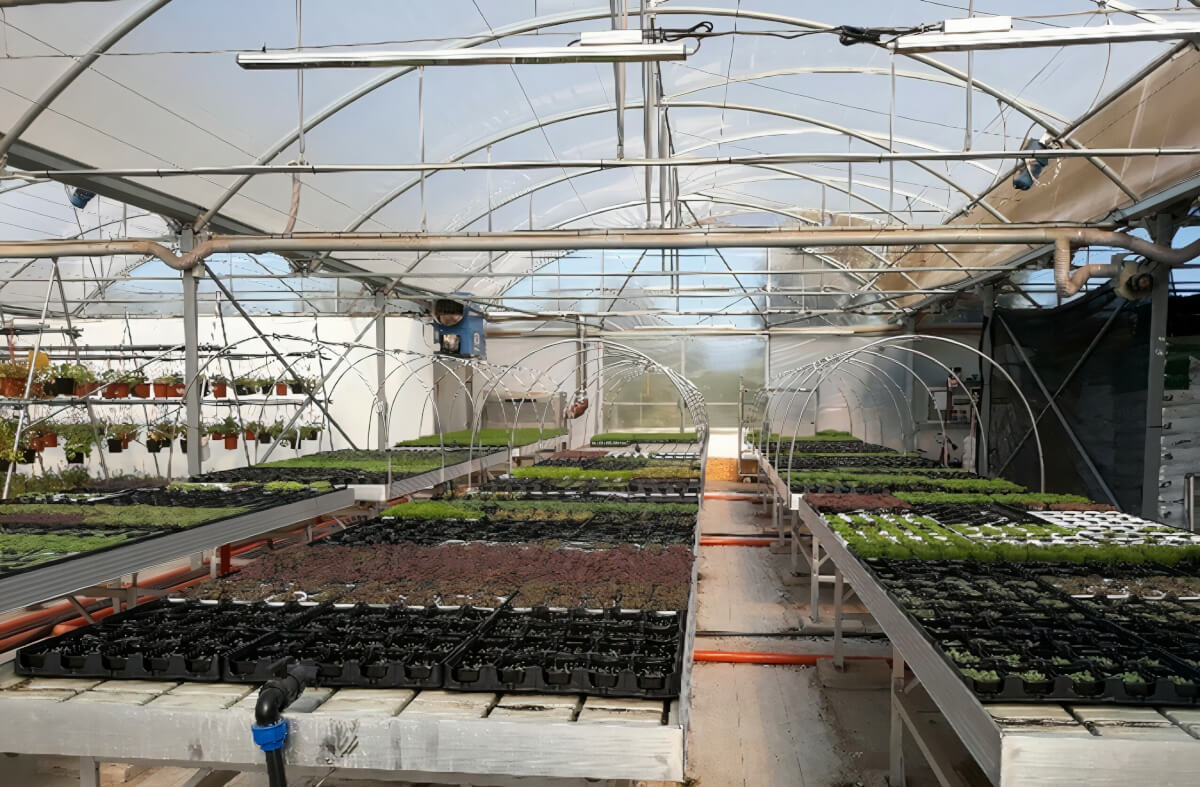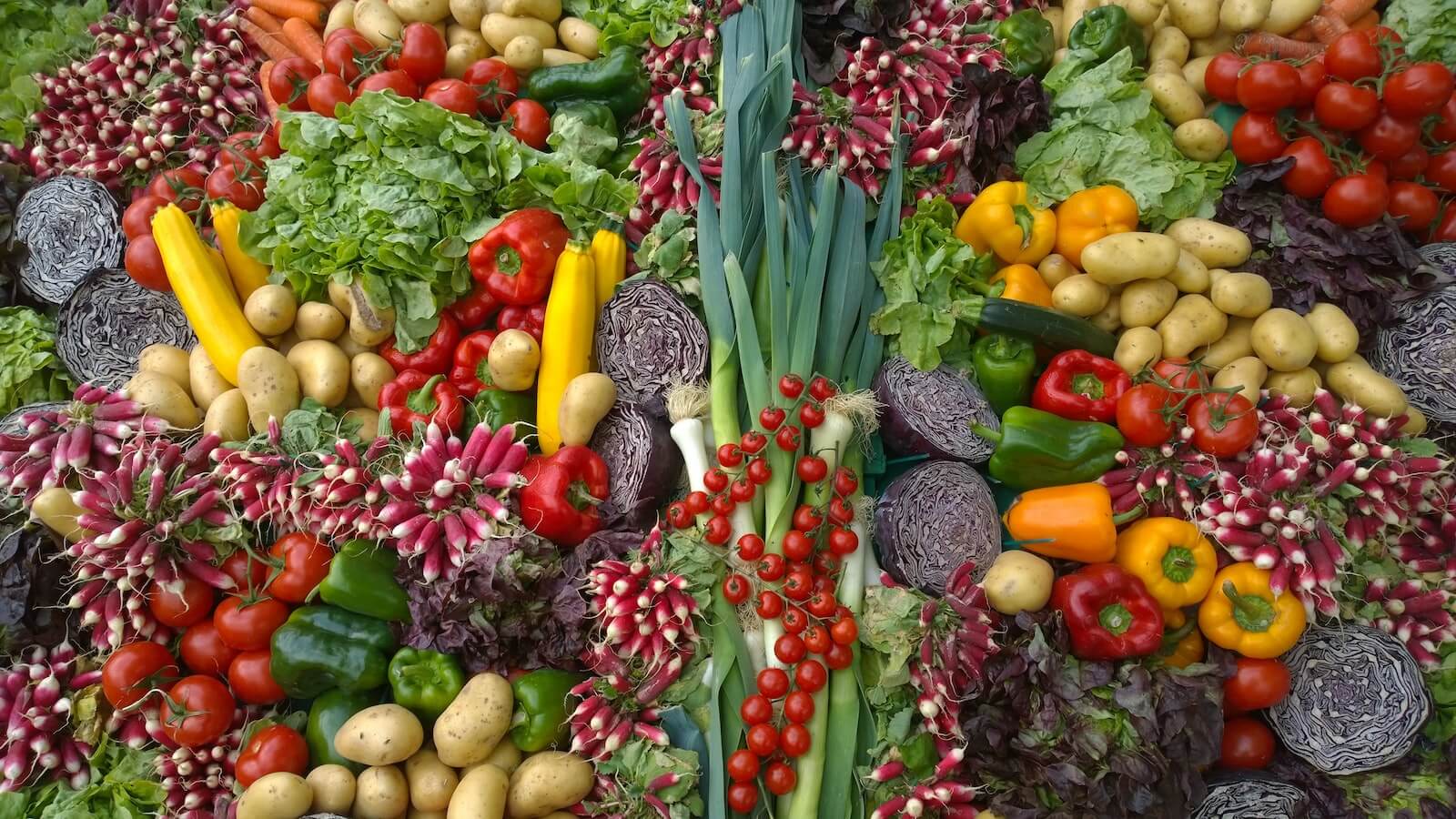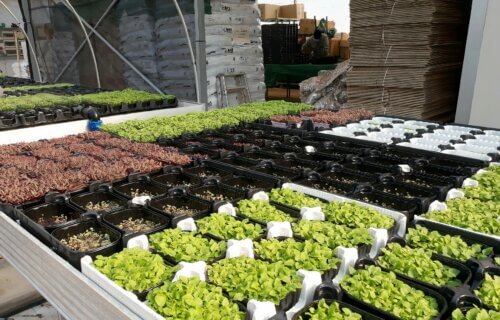BARI, Italy — Italian researchers are on the verge of revolutionizing the way people eat. They have successfully cultivated microgreens with specific nutritional profiles to meet individual dietary needs. This advancement marks a significant step in adapting plant production to cater to unique health requirements.
Led by Massimiliano D’Imperio and Francesco Serio from the Institute of Sciences of Food Production (ISPA) National Council of Research (CNR), and Massimiliano Renna, a professor at the University of Bari Aldo Moro, the research team undertook this project motivated by the increasing interest in personalized nutrition.
“Soilless biofortification of vegetables has opened the door to the potential for adapting vegetable production to specific dietary requirements,” says Renna in a media release.

The study focused on cultivating radish, pea, rocket, and Swiss chard, emphasizing two essential nutrients: iodine and potassium. Iodine is vital for thyroid function, and its deficiency impacts approximately two billion people globally. With the World Health Organization’s recommendations to reduce daily salt intake and the rise in vegetarian and vegan diets, there’s a growing need for alternative iodine sources. The team successfully grew plants with up to 14 times higher iodine content than standard microgreens.
Furthermore, they cultivated microgreens with 45 percent less potassium, addressing the needs of chronic kidney disease patients who must limit potassium intake to avoid health complications. The researchers highlighted that conventional methods of reducing potassium in vegetables, like soaking and boiling, are only partially effective and can lead to the loss of other important nutrients.
“In this context, the production of vegetables with low potassium content could be of great interest,” the researchers explain.
This study was conducted at Ortogourmet, a functioning microgreen farm in southern Italy, demonstrating the feasibility of large-scale cultivation of these tailored microgreens without compromising agronomic performance. Researchers utilized a soilless system, where plants are grown in a liquid medium instead of soil, and fed through a nutrient solution. This method, considered environmentally friendly, allows for optimal control of plant growth, high productivity, and efficient use of water and fertilizers. It also offers precise modulation of the nutrient solution.
The research team is now focusing on manipulating plant biological pathways to produce specific compounds. They aim to utilize extensive knowledge of plant metabolic pathways to identify intervention points to increase the production of desired molecules.
“The key idea is to leverage in-depth knowledge of plant metabolic pathways to identify key points where intervention is possible to increase the production of desired molecules,” the study authors say.

Such optimization will require thorough research into plant molecular biology, including the metabolic pathways involved in synthesizing target molecules, and continuous refinement of growth conditions.
“The combination of advanced scientific knowledge and innovative technologies can open new perspectives in the production of healthier and nutritionally biofortified vegetables,” the researchers conclude.
Funded by the SOILLESS GO (Rural Development Program of the Apulia Region – Italy) and NUTRAGE projects (CNR, FOE-2021 project), this research represents a significant stride in the field of agriculture, potentially transforming the way we approach nutrition and health through diet.
The study is published in the Journal of the Science of Food and Agriculture.
